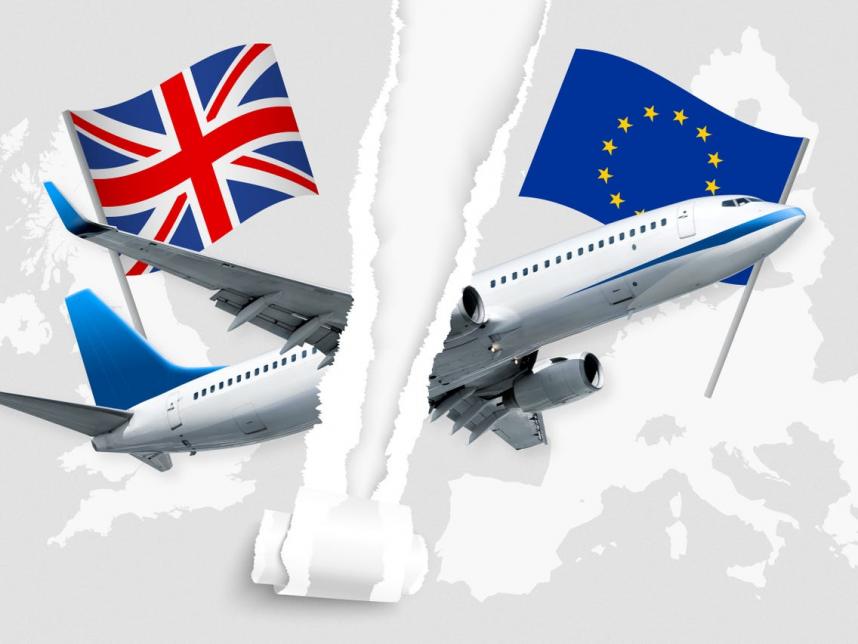
Aviation is one of the sectors that will be affected from the United Kingdom’s decision to leave the European Union.
As of January 1, 2021, the UK will leave the EU Single Market and Customs Union, as well as all EU policies and international agreements. It’s departure from the EU will create barriers to cross-border mobility and put an end to the free movement of persons, goods, services and capital with the bloc.
Although the official text of the new Brexit agreement between the EU and the UK has yet to be released, the European Commission has listed the consequences of the UK’s choice to leave the bloc.
Regarding aviation, connectivity between the UK and the EU will be highly affected among other things.
To ensure connectivity between EU and UK airports for passengers, goods and mail, the agreement sets out new terms and conditions for market access, as well as arrangements for cooperation in the areas of aviation safety, security and air traffic management.
UK carriers will be able to fly across the territory of the EU without landing; make technical stops in the territory of the EU for non-traffic purposes; and carry passengers and/or cargo on any routes between a given point in the UK and a point in the EU.
However:
– UK airlines no longer participate in the fully liberalised EU aviation market, meaning that they will no longer be considered as EU carriers and will lose existing traffic rights in the EU:
• They can no longer operate passenger and/or cargo flights between EU destinations based on UK-issued licence
• They can no longer perform onwards carriage services between the UK and two other Member States (e.g. Manchester-Munich-Warsaw)
• They will not be allowed to operate passenger flights onwards between the UK, a Member State and a third country (e.g. London-Amsterdam-Bangkok)
– UK no longer participates in or contributes to shaping standards in EU Aviation Safety Agency
– UK air carriers wishing to fly under the new EU-UK agreement will have to comply with certain conditions, such as holding a valid licence from the UK’s competent authorities, having their principal place of business in the UK and being majority UK-owned and controlled. UK carriers that are majority UK-/EEA- and/or Swiss-owned and controlled at the end of the transition period may also continue to operate.
EU carriers will have to respect similar conditions on licences and principal place of business and continue to comply with EU requirements on EU/EEA/Switzerland majority ownership and control.